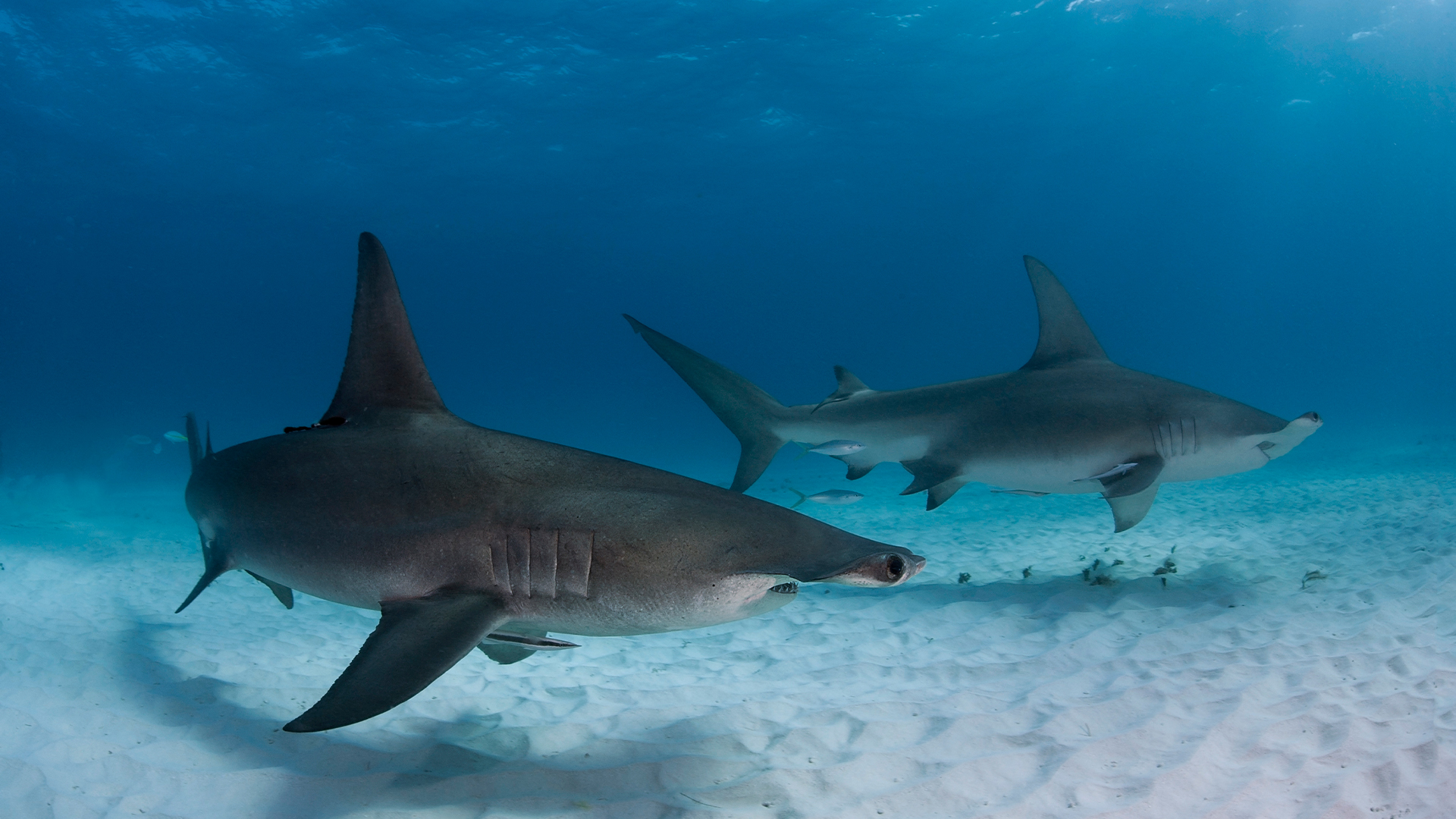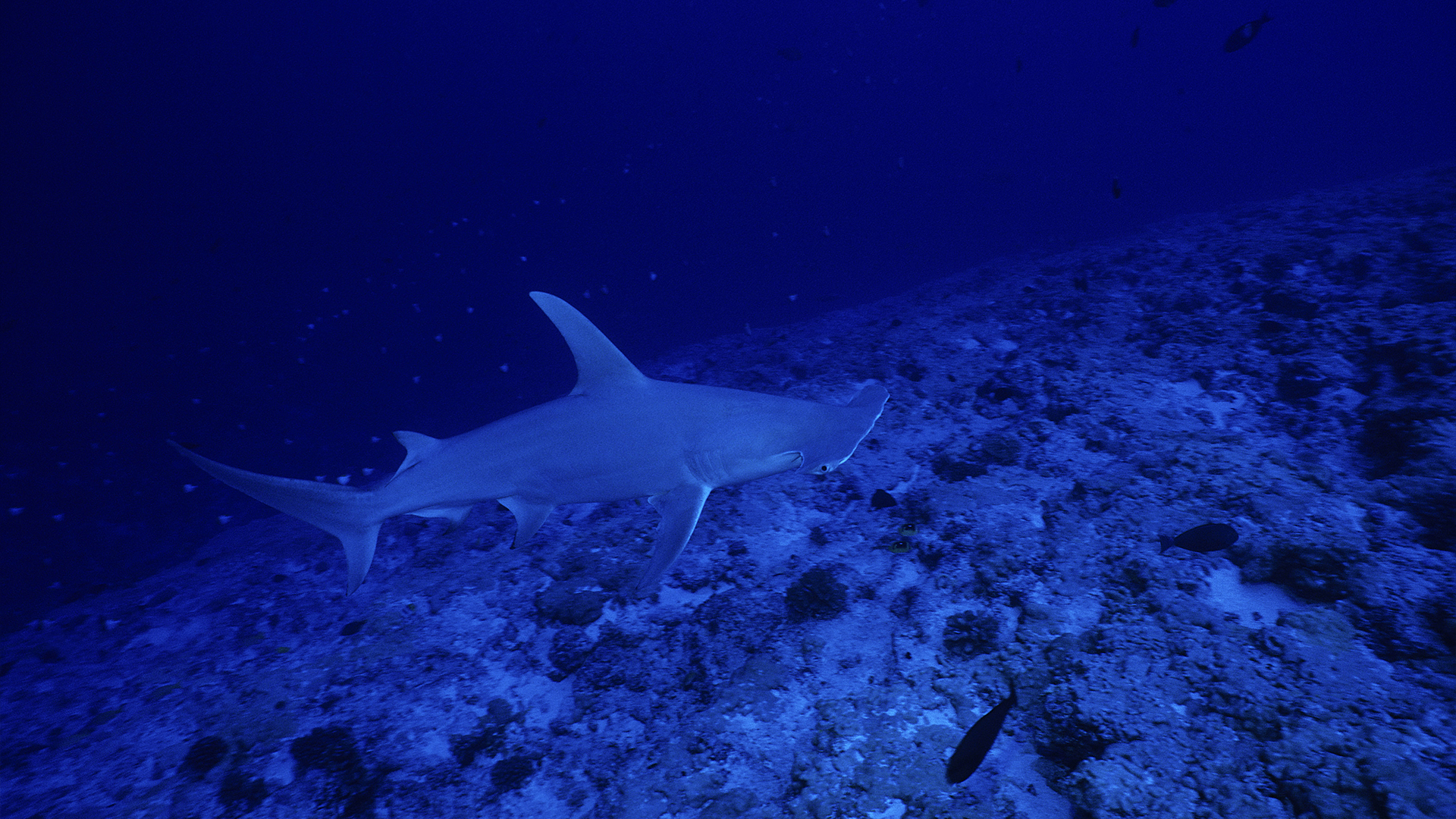
An unusual, all-female assembly of great hammerhead sharks has been gathering in the tropical waters of French Polynesia every summer for over a decade, with numbers peaking around the full moon, scientists have discovered.
These critically endangered sharks convene during the austral summer, between December and March, around openings in two neighboring atolls — Rangiroa and Tikehau — in the Tuamotu archipelago. An atoll is a ring-shaped island or coral reef enclosing a lagoon that forms when land erodes and sinks below the ocean surface.
In the summers of 2020 and 2021, researchers recorded 54 female great hammerhead sharks (Sphyrna mokarran) and one whose sex could not be determined at the two atolls, which are 9 miles (15 kilometers) apart.
They noted that more than half of the sharks were seasonal residents, meaning they spent up to six days a month there, for up to five months. The findings were published Tuesday (Aug. 29) in the journal Frontiers in Marine Science.
Related: Critically endangered hammerhead shark found dead on US beach was pregnant with 40 pups
Female sharks in the vicinity of Rangiroa atoll mostly gathered in a spot called "hammerhead plateau" — an area 150 to 200 feet (45 to 60 meters) deep, according to the study. "They were mainly sighted roving around the bottom of the plateau, independently from one another," the researchers wrote.
Great hammerhead sharks are a solitary species, so the high number of females sighted at the same time around Rangiroa and Tikehau atolls indicates the area is an aggregation site, according to the study. The sharks likely have no relationship to each other but are drawn there by external factors that appear to be linked to the lunar cycle and the presence of ocellated eagle rays (Aetobatus ocellatus), the study found.

The number of sharks peaked in the days shortly before and after a full moon during both summers — perhaps because the increased moonlight enhanced their ability to hunt around the atolls at night, the researchers suggested. The sharks may also have responded to changes in Earth's geomagnetic field as the moon waxes and wanes, they posited.
Large gatherings of great hammerheads in the area coincided with high numbers of ocellate eagle rays entering the lagoons to reproduce. Sharks prey on these rays, whose mating season is "a predictable event that sharks could try to intercept," the researchers wrote.
Increased water temperature after the winter months may also lure sharks to the Tuamotu archipelago, the scientists added.
The researchers compared their observations with long-term data collected on the atolls, which revealed that some sharks have been returning every summer for 12 years. The team identified an additional 30 male and female sharks from these records and found that males were primarily sighted from August to October, rather than during the summer.
Segregation between males and females has previously been reported for scalloped hammerhead sharks (Sphyrna lewini), the researchers noted, but not for great hammerheads. The researchers' findings suggest that males remain at a distance from the sites occupied by females during the austral summer, which could be linked to their breeding period.
"Lagoons and their protected warm-shallow-coastal waters are known to serve as nursery areas for various shark species," the researchers wrote. While they could not confirm this in the new study, further investigation is underway to determine whether Rangiroa and Tikehau atolls provide nursery grounds for great hammerhead sharks, they added.







